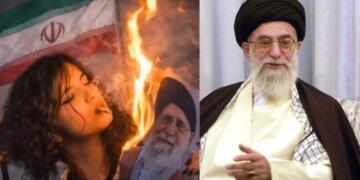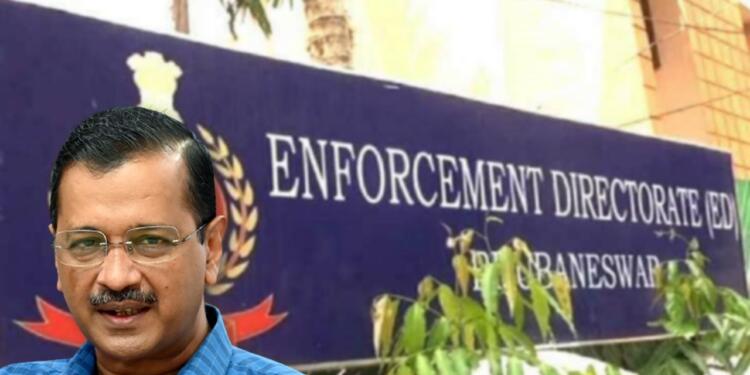Delhi liquor scam case: A democratic system without adequate checks and balances will not be sustainable in the long run. It will quickly follow the path of anarchic setup. In that case, the administrative heads may become despots, making decisions at their leisure. The Aam Aadmi Party government evaded responsibility and avoided accountability for their actions and alleged wrongdoing. They made it possible by causing a commotion through their time-tested strategy of politicising agencies and institutions.
However, recent times have seen a shift. The responsible authorities have refrained from succumbing to the party’s tactic of creating chaos. They have instead kept their focus on investigating cases based solely on their merit, regardless of political considerations, implications, or the urge to appear politically correct.
The latest development in the Delhi liquor scam case
The Enforcement Directorate recently submitted a new chargesheet in the ongoing Delhi liquor scam case. It included new allegations that have heightened tensions for the AAP government in Delhi. The agency’s submissions hint that the Chief Minister of Delhi, Arvind Kejriwal, was not only aware of the Delhi liquor scam case but had participated in it.
ED alleged that Vijay Nair arranged a FaceTime call between Sameer Mahendru and Delhi Chief Minister Arvind Kejriwal. Before moving forward, it is necessary to identify these individuals. For those unfamiliar with the case, Vijay Nair is AAP’s communications in charge. Sameer Mahendru, a liquor trader, is the chief of Indospirits. Both of them are accused in this case and were arrested earlier.
Also read: AAP is drowning deep in corruption, Jal Board and liquor are just the tip of the iceberg
Henceforth, this purported acceptance by Vijay Nair holds great significance in the case. As per the ED, Vijay Nair used his iPhone to make the alleged FaceTime call between Kejriwal and Sameer Mahendru. Reportedly, Mr. Kejriwal told Sameer that Vijay Nair is ” his boy.” Therefore, Sameer can proceed with Vijay.
As per ED, Vijay Nair, on behalf of AAP leaders, received kickbacks worth Rs100 crore from the “South Group.” It was taken as an advance for licences in Delhi’s liquor policy. Reportedly, the South group comprises YSRCP MP Magunta Sreenivasulu Reddy, his son Raghav Magunta, Aurobindo Pharma director P Sarath Chandra Reddy, and Kavitha Kalvakuntla, the daughter of Telangana Chief Minister KCR.
Did AAP hatch a liquor scam to secure Goa?
According to the ED, approximately Rs 70 lakh in cash payments were given to the volunteers who were a part of the AAP’s survey teams in Goa. The agency stated that Vijay Nair instructed certain individuals involved in campaign-related activities to receive the payments in cash.
The central agency stated that Hyderabad-based businessman Abhishek Boinpally, in conspiracy with Delhi Deputy Chief Minister Manish Sisodia’s aide Dinesh Arora, facilitated the transfer of the said funds. The chargesheet said, “Investigation of the trail of this kickback so far has revealed that part of these funds were used in the election campaign of the AAP.”
Also read: Gangs of LiquorPur: Sardar Kejriwal and Ramadhir KCR are friends in this new epic saga
Notably, the Goa elections were held in February 2022, during which AAP ran an aggressive campaign. However, its relentless campaigning didn’t click with the Goan voters. AAP won only two seats in an assembly with 40 members.
The case file
The Central Agency made these claims in its supplementary chargesheet produced before Delhi’s Rouse Avenue Court. The two main claims, as stated above, are:
- Arvind Kejriwal directed Sameer Mahendru through a Facetime call to work with Vijay Nair. Nair later received kickbacks to the tune of Rs 100 crore from the prominent “South Group.”
- A part of the money raised from the purported Delhi liquor scam was used for the Goa election campaign.
The supplementary charge sheet named AAP’s Vijay Nair, businessmen Sarath Reddy, Binoy Babu, Abhishek Boinpally, and Amit Arora, but did not include the names of Manish Sisodia or Arvind Kejriwal.
Here is a concise chronology of the alleged Delhi liquor scam case.
- It was introduced on November 17, 2021.
- The controversial Excise Policy was temporarily extended twice, for two months each, from March 21 to July 21.
- In July 2022, Delhi Lieutenant Governor Vinai Kumar Saxena recommended a CBI probe into the Delhi Excise Policy 2021–22.
- Following that, the CBI and ED are both investigating the case, and several notable arrests have been made, including Sameer, Vijay, and Hyderabad businessman Abhishek.
- The agencies have been carrying out raids on multiple occasions, including at the offices linked with Excise Minister Manish Sisodia.
The now-retracted controversial Delhi excise policy was approved in haste during the peak of the devastating Covid outbreak in 2021. At that time, the state’s healthcare system was in a dire state. Yet the cabinet led by Arvind Kejriwal prioritised and passed this excise policy for 2021–22.
Also read: Delhi LG’s nod to CBI probe into DTC bus scam will open Kejriwal’s dirty closet
Furthermore, the same controversial excise policy was good enough for the Delhi government to extend it twice. However, the same flagship policy soon became a hot potato for the Aam Aadmi Party when the Delhi LG prompted the CBI to investigate the case.
Taking a sharp u-turn, the Arvind Kejriwal-led government in July 2022 abolished the Excise Policy. As a result, the old system was reinstated for the next six months. The new policy had granted 849 liquor licences to private companies through open bidding. The city was divided into 32 zones, each with a maximum of 27 vending locations. The bidding was conducted on a zone-by-zone basis rather than for individual licences.
In their submissions, the ED and CBI have claimed that irregularities were committed while modifying Delhi’s excise policy with connivance and kickbacks from the liquor lobby. The agencies claim that the licence fee was waived or reduced and that undue benefits were granted to liquor licence holders.
Also read: After drowning Kejriwal in “liquor”, CBI takes him on a bus ride
It was alleged that liquor companies made a 12% profit, and 6% of it was channelled to public servants through intermediaries such as Hyderabad-based businessman Abhishek Bonipally. Reports by the Delhi Chief Secretary in July 2022 had indicated that the Excise Policy 2021–22 was enacted with apparent violations of the GNCTD Act 1991, the Transaction of Business Rules 1993, the Delhi Excise Act 2009, and the Delhi Excise Rules 2010.
Considering AAP Supremo’s fascination with Youtube, the allegation of having made a Facetime call with Sameer Mahendru may not be a far-fetched allegation. Owing to a lack of accountability, the AAP government was intoxicated with unquestionable authority and implemented such a controversial liquor policy. The policy seems to have badly embroiled the party, with its higher-ups, including Mr. Kejriwal and Manish Sisodia, facing the heat for it.
Support TFI:
Support us to strengthen the ‘Right’ ideology of cultural nationalism by purchasing the best quality garments from TFI-STORE.COM

























